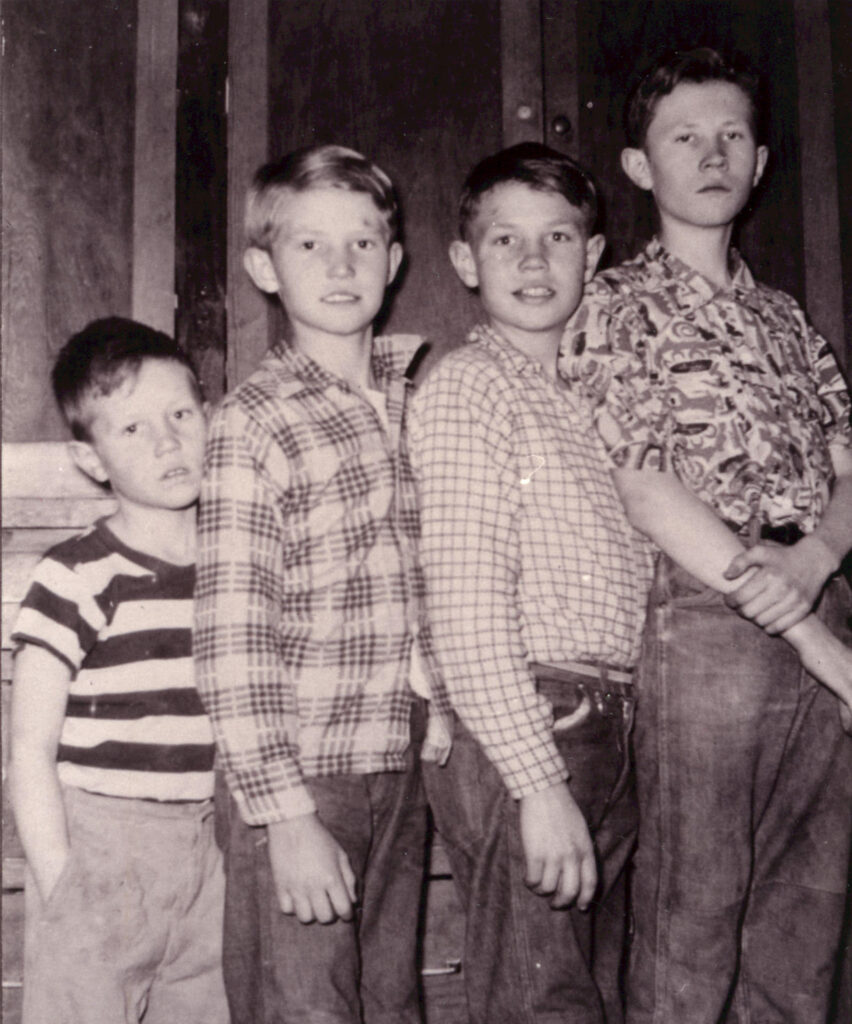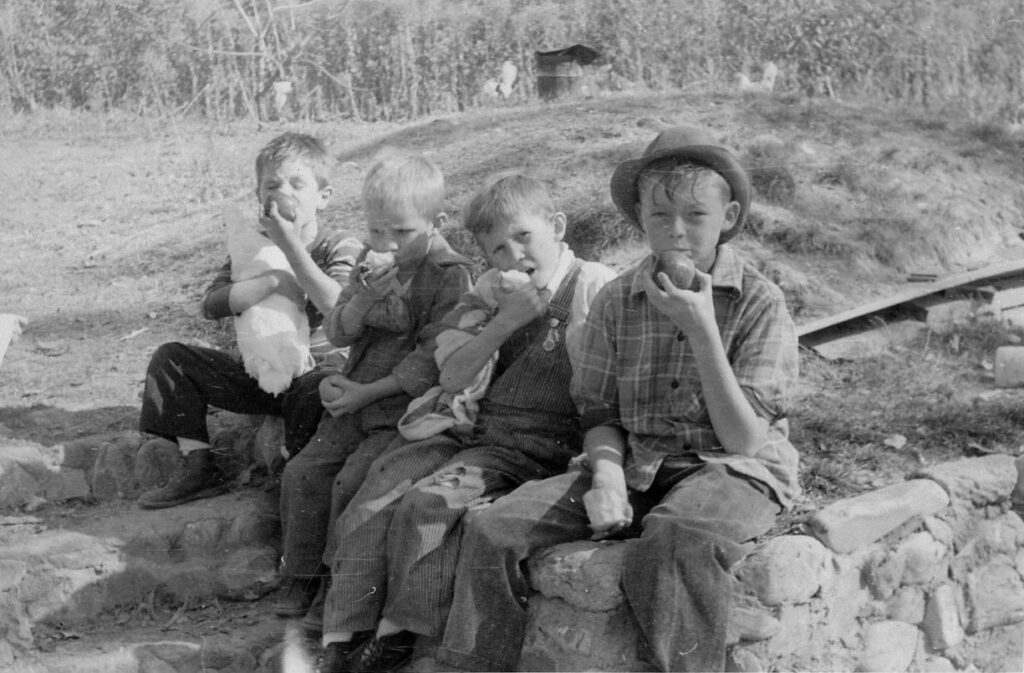A Brief History About Dan
Thursday, May 30, 2013
Introduction
As a youth I didn’t take music lessons with the intent that I would someday be a teacher. As I reflect on my career as a musician, I’m constantly amazed at the quality of people who have entered my life so I could learn what I needed in order to sing, play and eventually teach others. These Vocal & Instrumental Training Workbooks have evolved after years of study, trial, and error. Teaching music in partnership with life skills has yielded positive results and helped me realize how important these methods have been to me and my students.
In the Beginning
My personal study began in my home while singing with my family. Voices thrilled me at a very young age. My mother, Dorothy, was gifted with a beautiful soprano voice and sang with the Women’s Choir at the Tabernacle. I listened intently to the voices around me. I sang along with my uncles, John and Tom, who performed Barbershop harmonies. Soon the harmony skills I had learned prompted me to form a folk group, the “Del Ray Trio,” which performed at various events. That simple music and my ability with stringed instruments gave me an insatiable desire to learn more. While serving in the U.S. Army Reserve 328th General Hospital at Fort Ord, California (near San Francisco which was the capital of Folk music in the 1960’s), I discovered a professional folk singer named Larry Vargo. Larry was a draftee with a beautiful Martin guitar and five-string banjo. Lucky for me he had no one to play along with but me so he proceeded to teach me all he knew. Not many months later I boarded a train heading for Southern California to serve a church mission, first stop-Hollywood. There were many more opportunities to listen and to sing.


Lessons Learned
I studied piano with Mrs. Cottrell, trumpet and tuba at William Penn Elementary, guitar, banjo, bass, drums, and mandolin with private teachers and friends. I even played some fiddle and autoharp. I learned the discipline of practicing. My interest in playing the horn rapidly faded when I discovered I couldn’t sing and play tuba at the same time! It was in high school that voice and guitar became my main focus. I fell in love with singing harmonies in folk groups which were popular during the 60’s, mainly because it was simple melodic music and invited sing-a-longs.
Formal Education
Two years later my formal instruction began. I enrolled at the University of Utah and felt fortunate to receive private instruction from Dr. Newell Waite. My first voice lesson with him gave me a head start, but also let me know that progress was going to take time. I thought I would sing high and clear in only a few lessons but that did not happen. With his guidance, I discovered some of the things I was doing wrong. My first big step in the right direction was to start learning proper breathing techniques.
Revelation
One day, I attended the local SPBSQSA Chorus (Society to Preserve Barber Shop Quartet Singing in America). The director was Milt Christensen. I believe he thought I had promise, because when a need developed for another tenor in his quartet, “The Salt Flats,” I was invited to attend their rehearsals to see how things were done. They were amazing singers with a humorous routine on stage. They also
played instruments in their show. I decided then that was what I wanted to do. Suddenly I noticed a very big problem with my voice. I couldn’t hit the high notes required without popping or going out of tune. My upper voice was non-existent, which reminds me of an experience my son, Jon, and I had in New York. We had traveled clear across the country so he could have his first real professional lesson with a top studio drummer. During the lesson, he was awakened to truth when he was told, “your left hand is pathetic!” I realized at this point in my training that my voice was exactly that, pathetic! I went to the chorus and sat next to these old men singing their hearts out. I tried to sing along, but only realized more than ever what I did not know. I opened the phone book and started looking for another voice teacher. I knew I could do this. I went back to Dr. Waite. Again, ‘Breath Control’ was my lesson. To this day I still teach his approach to breathing. I never did get to sing with “The Salt Flats” but am thankful for the interest they created in me to be a better singer.
More Education
I was doing performances with “The Golden Spike Quartet,” another folk group. It was not going as well as I wanted so I enrolled to study music at Brigham Young University. Dr. Woodward was the male chorus teacher with every student like me, young and teachable. His class was not only filled with interesting and beautiful harmony but his instruction on how to sing properly really gave me a lift. My other music classes such as Theory and Harmony began pulling together what I needed.
Professional Experience
In 1965, I accepted a job offer to move to Los Angeles, California and became a bass player/background vocalist for “The Lettermen” singing group who had a contract with Capitol Records. They had hit records all over the place. “Going Out of My Head,” “Can’t Take My Eyes Off Of You“ and “Theme from a Summer Place” were big hit songs then. As well as a bass and guitar player, they also needed me to drive the tour bus and set up PA equipment. That’s where I learned to play the bass and sing fourth part harmonies in concert. My friends and teachers at this stage of my life included: Wilson Brown, piano; Jim Pike, Toni Butala, and Bob Engemann, vocalists. Following the tour I stayed in Los Angeles and created my own performing group, “The Justus Brothers.” We worked together for nearly ten years in the Southern California area.
And . . . Even More Education
I enrolled at the Los Angeles Valley College with teachers, Dr. Cox, Voice, and Dr. Jim Carlson, Jazz Bass. Pianist Stanley M. Seale worked with me in my group and was my roommate in North Hollywood. We still work together today and he has been one of my best instrumental teachers and friends. From there I found private voice teachers, Seth Riggs and Dr. Richard Miller. Each gave me the best they had and I am grateful for their time and talents. Library study became my pastime. I devoured every method book I could find on the subject. I remember buying one particular library book as “lost” because I liked it and it was out of print. See my bibliography for sources and resources.
Creative Productions, Real Work, And A Real Scare
With help from my group, friends and my wife, Bonnie, I produced an album and play of contemporary gospel music called “Open Any Door.” The Justus Brothers released a record of original songs entitled “In Search of Justus.” We started working six nights a week, three hours a night, at a restaurant, the Plank House. That is where I realized my voice was in trouble from singing long hours. Fatigue set in and my voice was actually shutting down (plus my guitar bar chord finger grew so sore, I was forced to learn a new “grip chord” using my thumb). Without some additional training, I knew I could damage my voice permanently. It was around this time I found out that my Lettermen friend, Jim Pike, was not singing at all due to his vocal problems and lost his job singing. This was a high motivation for me to do something quick. During the day I was selling pianos and organs at Steinway Hall of Sherman & Clay Music Store on Wilshire Blvd., Los Angeles. A customer named Seth Riggs came in to purchase a piano for one of his students. We talked about his work as a vocal teacher. When I told him of my problem he invited me to his home in Hollywood Hills for a lesson. What he did for me in that one lesson changed my life. The drills and explanation about the proper use of my voice was perfect for me. Every night I sang in my group, without fatigue. The quality of my sound improved quickly and dramatically. I started to teach my drummer, Bob Morphis and my Pianist, Nick Peper. We would do our drills on the way to the gigs. Everything improved and we were doing things vocally we had never dreamed we could accomplish. I particularly remember the song “If” by the popular group, Bread. After that one lesson with Seth Riggs, I sang the song and went into my mix voice. It didn’t hurt and I could fly around up there with little or no effort. Wow!!! Something wonderful happened. Work continued and several more albums were completed using this new voice.
On a More Personal Note
All of the things I had ever desired to do with my voice began happening. I was fulfilling life dreams and learning life skills with my music and performing. I found my soul mate and best friend when Bonnie Clarke became my wife in 1969. We began our family and had four children in the Southern California area, Julie, Jill, Daniel and Timothy. Of course my focus changed to family life and I continued to work and perform in the area. In 1979, we were prompted to relocate to Salt Lake City where there isn’t really a music business like in California. I expanded my talents to retail music sales, teaching and local performances. Shortly after our move, tragedy struck our family when our oldest son, Danny, then age 6, was diagnosed with brain cancer, thus beginning a long rocky seven year road until he was taken to his heavenly home in 1987. By then we had another son, Jon, and I began teaching music full time. An opportunity came my way to perform with a popular local group called, “Sun Shade’n Rain,” which I did for a number of years along with Jeff Gregerson, Mel Teeples, Dan Lindstrom and Ray Carter. We became good singing buddies, traveled around singing in Nauvoo IL., Reno, Utah, Calif., and Idaho. Performing helps keep the sound alive in me. I am grateful every day that I learned how to sing and play music. I am pleased to present some of what I learned over the years to you, the next generation of singers and players. Music really does ‘make a difference’ in our lives.
Postscript
As I look back, I realize that my original motivation for the concept of Whitley Music School began at the moment my cancer-stricken son, Danny, asked me to teach him how to play an instrument and sing. It really got to me when he said. “I want to play in a band like you, Dad.” Knowing that his time with us would be short, there was no other option for me. His 6th grade concert at Ridgecrest Elementary was with my first student band called “The Foxes and the Hounds.” In the program, Danny’s solo was played with one foot and one hand. His classmates had grown to love him and they cheered as he played and sang. Four brain surgeries and six years of music lessons later, he was gone. But he lives on in my memory as I do ‘repeat performances’ with group after group today. Teaching him for those years turned my life around and I became a seasoned music teacher, teaching, teaching … and more teaching.
